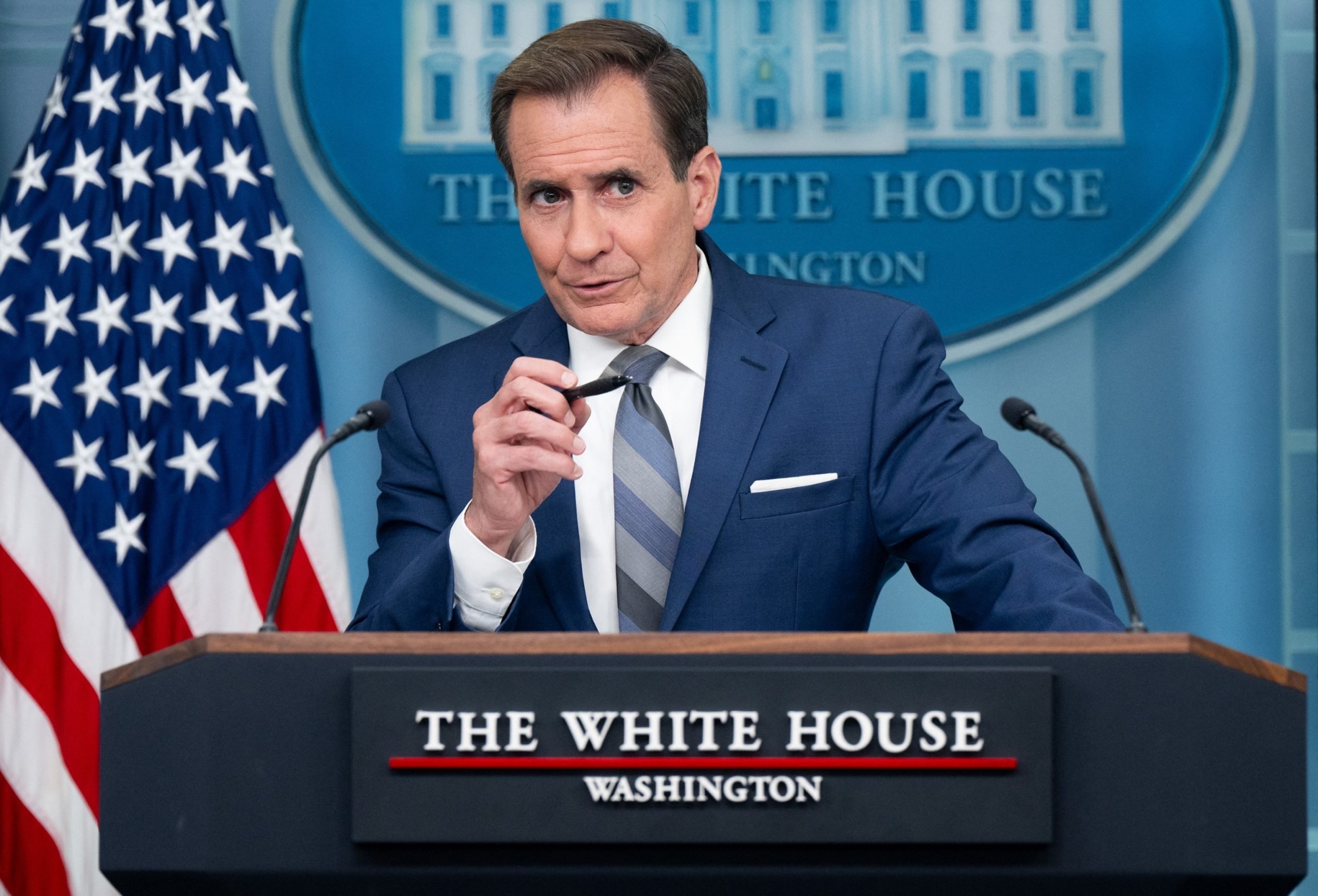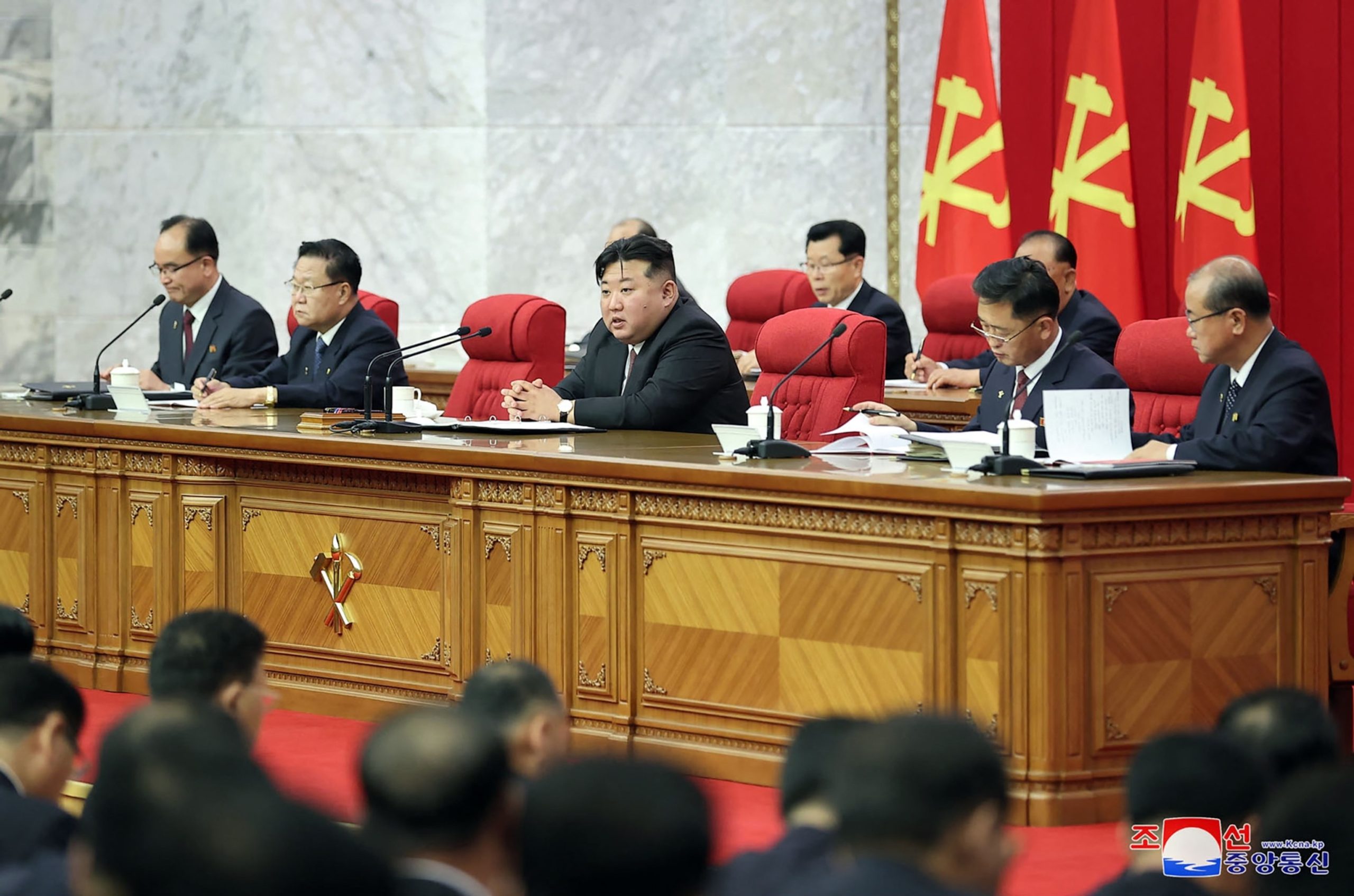The public war of words between Israel and the U.S. continued Thursday with Prime Minister Benjamin Netanyahu responding pointedly to the White House after the Biden administration again denied his claim the U.S. is withholding weapons from Israel amid its fight in Gaza with Hamas.
His response came shortly after White House National Security Council spokesman John Kirby, in a call with reporters on Thursday, called Netanyahu’s claim “perplexing to say the least” and two days after the White House bluntly said it “genuinely didn’t know what he’s talking about.”
In a video he released earlier this week, Netanyahu claimed “the administration has been withholding weapons and ammunitions” Israel needed to fight Hamas.
On Thursday, he said, “I am ready to suffer personal attacks provided that Israel receives from the U.S. the ammunition it needs in the war for its existence.”
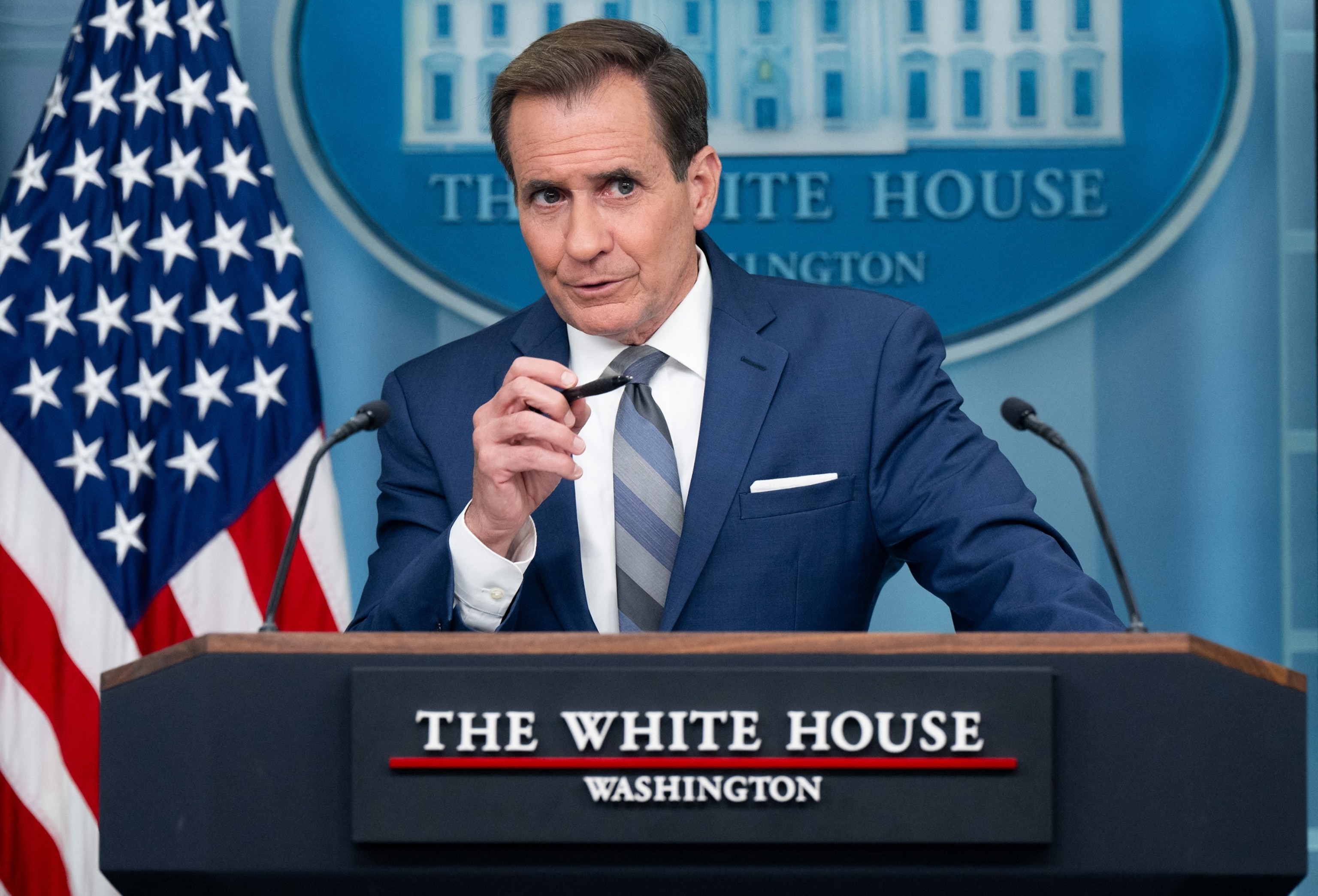
National Security Council spokesman John Kirby speaks during the daily press briefing in the Brady Press Briefing Room of the White House, in Washington, D.C., on June 17, 2024.
Saul Loeb/AFP via Getty Images
Kirby reiterated the White House’s frustration.
“Obviously, we didn’t know that video was coming and it was perplexing to say the least, certainly disappointing, especially given that no other country is doing more to help Israel defend itself against the threat by Hamas, quite frankly, other threats that they’re facing in the region in the United States,” he said, adding he had “no idea” what prompted the Israeli politician to post it.
“There has been no change in our posture,” Secretary of State Antony Blinken insisted on Tuesday, saying it was “regular order” with the exception of one shipment of 2,000-pound bombs paused over Biden’s publicly expressed concern the imprecise munitions could be used in the southern Gazan city of Rafah and other areas heavily populated by civilians.
Two officials involved in approving arms transfers to Israel backed up the secretary’s comments, telling ABC News the administration is continuing to process both longstanding requests in the pipeline and new orders made after the onset of the conflict.
“You’d have to talk to the prime minister about what prompted him to do that,” Kirby said of his video comments. “Again, it was vexing and disappointing to us — as much as it was incorrect. So, difficult to know exactly what was on his mind.”
Kirby, asked about a behind-the-scenes efforts to get an apology from Netanyahu over the video, also said, “I think we’ve made it abundantly clear to our Israeli counterparts from various vehicles our deep disappointment in the statements expressed in that video and our concerns over the accuracy in the statements made.”
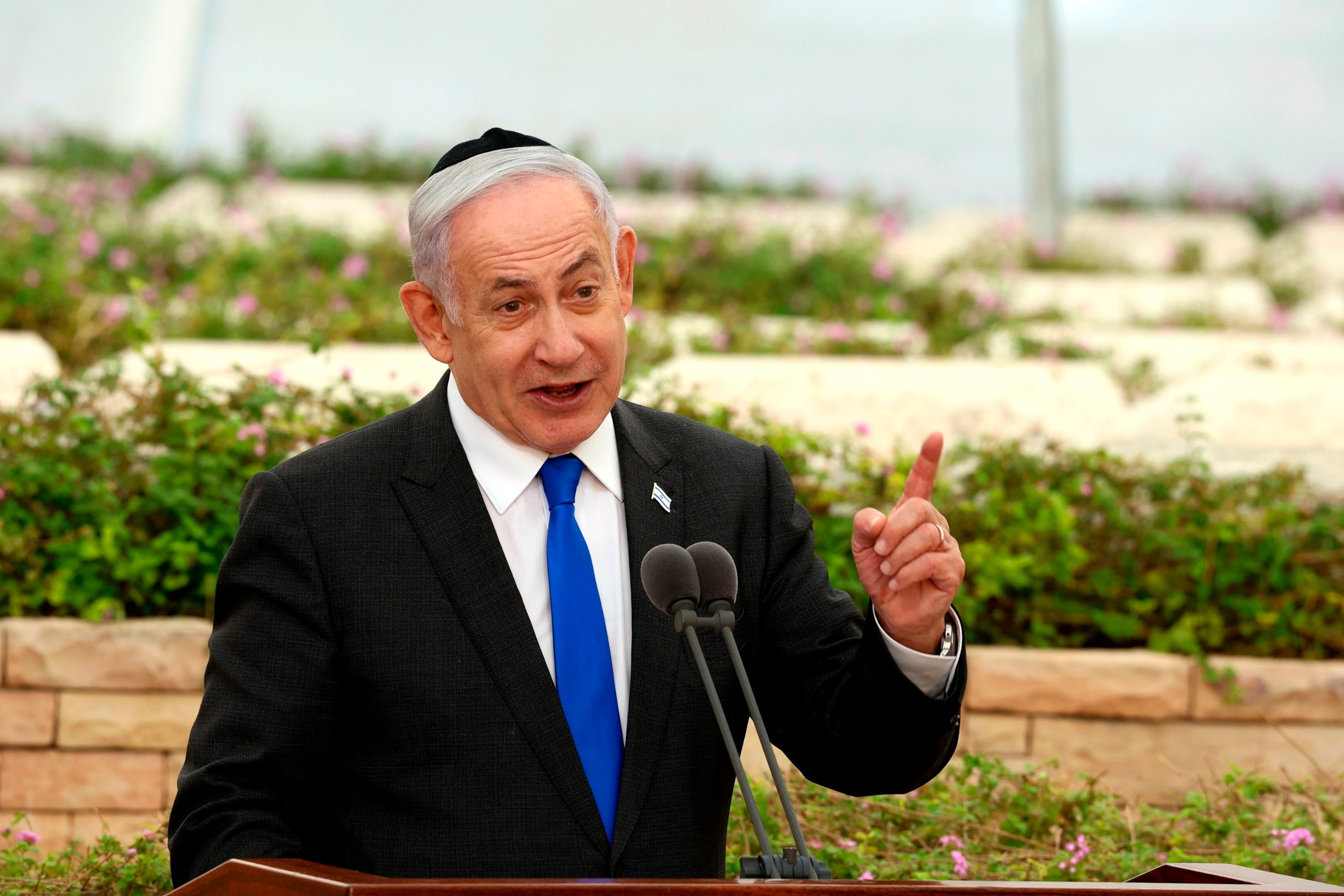
Israeli Prime Minister Benjamin Netanyahu speaks during a ceremony at the Nahalat Yitshak Cemetery in Tel Aviv, Israel, on June 18, 2024.
Shaul Golan/AP
Despite the growing public tensions, officials from both nations met in Washington on Thursday to discuss the ongoing war. Kirby confirmed that national security adviser Jake Sullivan would still be meeting with high-level Israeli officials coming to the White House.
“Jake [Sullivan] will be meeting today with his counterpart,” Kirby said, referring to Tzachi Hanegbi, the head of Israel’s National Security Council. He also said that Ron Dermer, Israeli’s Minister of Strategic Affairs, would be in the session.
“It’ll be a wide-ranging discussion, I think you can imagine, about everything that’s going on with the Gaza war with our support to Israel, with our efforts to get a better sense of how they’re continuing to prosecute operations against Hamas, as well as continuing to talk about the importance of closing on this deal,” Kirby said ahead of the meeting.
Biden’s team was enraged and frustrated by Netanyahu’s video, a U.S. official told ABC News on Wednesday, adding that U.S. officials have made clear to the Israelis that Netanyahu’s video is inaccurate and out of line.
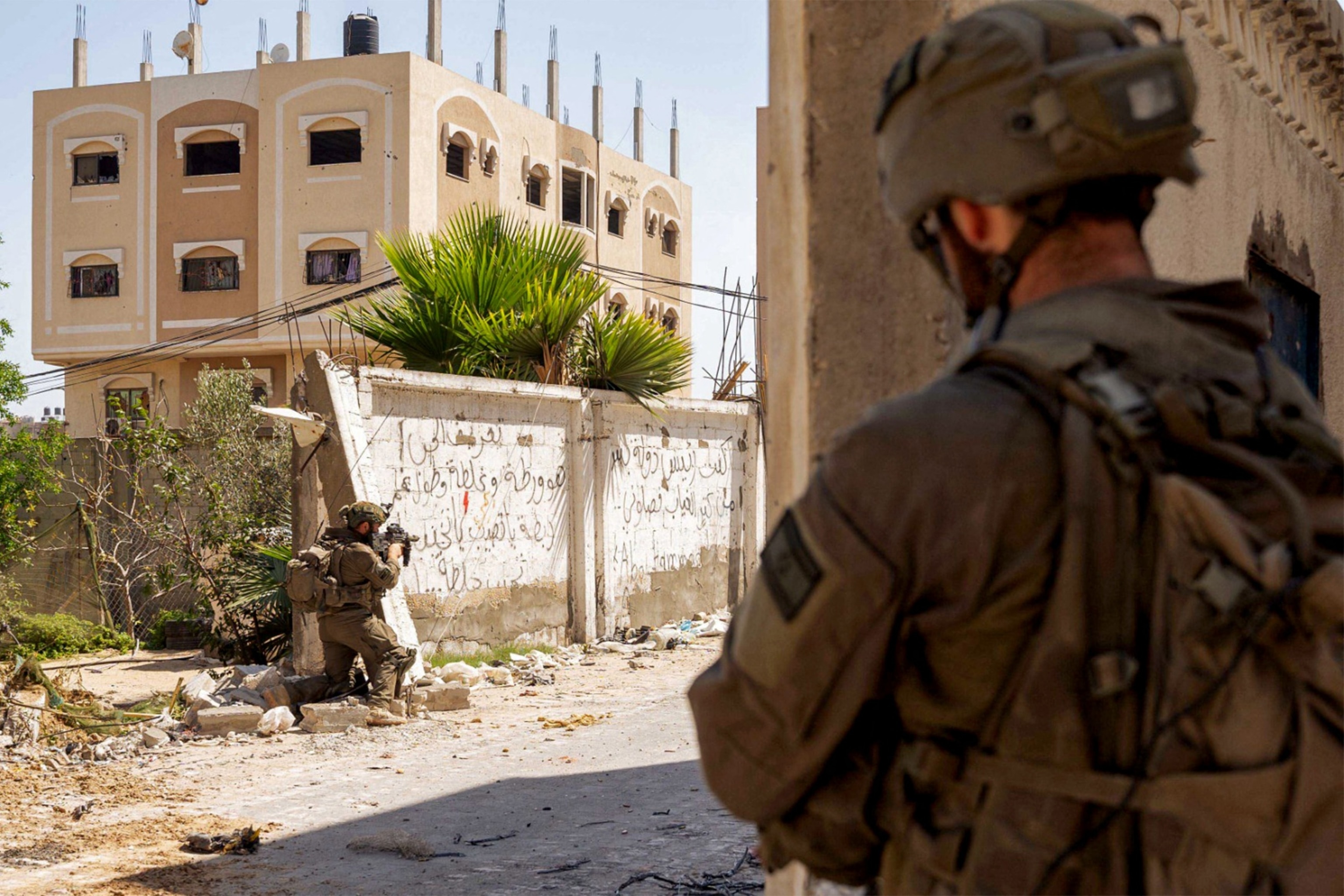
This handout picture released by the Israeli army, on June 20, 2024, shows Israeli army soldiers operating in the Gaza Strip amid the ongoing conflict in the Palestinian territory between Israel and Hamas.
Israeli Army Handout via AFP via Getty Images
The meeting comes after the U.S. canceled another meeting between American and Israeli officials to discuss Iran in response to the Netanyahu video, officials confirmed to ABC News.
But the White House pushed back on claims that a high-level U.S.-Israel meeting on Iran scheduled for this Thursday was canceled specifically because of the video. It instead pointed to scheduling issues as the reason for the cancellation of the meeting. The White House also insists that the meeting will be rescheduled.
At the State Department Thursday, spokesperson Matt Miller announced that Blinken would meet with Dermer and Hanegbi Thursday afternoon.
Miller said that during the meeting, the officials would discuss “our ongoing work to try to reach a ceasefire that will secure the release of all hostages” as well as the situation in north of Israel along the country’s border with Lebanon, as well as ongoing work to “get humanitarian assistance into Gaza and work that needs to be done to accelerate and improve that process.”
ABC News’ Will Gretzky and Shannon K. Crawford contributed to this report.
The ongoing conflict between Israel and Hamas in Gaza has once again highlighted the strained relationship between Israeli Prime Minister Benjamin Netanyahu and the White House. One of the key points of contention between the two sides has been the level of US weapons support for Israel during the conflict.
Netanyahu has been vocal in his criticism of the Biden administration’s approach to providing military aid to Israel during the conflict. The Israeli leader has argued that the US should be doing more to support Israel in its fight against Hamas, particularly in terms of providing advanced weaponry and ammunition.
On the other hand, the White House has maintained that it is committed to providing Israel with the necessary support to defend itself, but has also expressed concerns about the high civilian death toll in Gaza and the need for a ceasefire to end the violence.
The disagreement over US weapons support for Israel during the conflict has underscored the complex dynamics at play in the Israeli-Palestinian conflict. While the US has long been a staunch ally of Israel and has provided billions of dollars in military aid to the country, there are growing calls within the Democratic Party for a reassessment of US support for Israel in light of its treatment of Palestinians.
The Biden administration has faced pressure from progressive lawmakers to take a tougher stance on Israel and to condition military aid on respect for human rights and international law. This has put the White House in a difficult position, as it seeks to balance its support for Israel with its commitment to upholding human rights and promoting peace in the region.
As the conflict between Israel and Hamas continues to escalate, it remains to be seen how the disagreement over US weapons support will impact the relationship between Netanyahu and the White House. The Biden administration has called for a ceasefire and has been working behind the scenes to broker a truce, but tensions between the two sides are likely to persist as long as the violence continues.
In the meantime, the people of Gaza continue to suffer as the conflict rages on, with no end in sight. The international community must continue to pressure both Israel and Hamas to end the violence and work towards a lasting peace that respects the rights and dignity of all people in the region.
